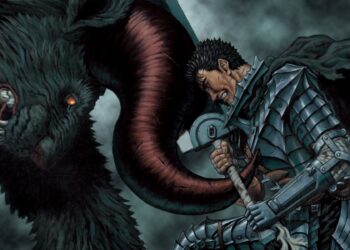So, You’re Asking About Sogga? Let’s Talk Caracals, Floppa, and Everything In Between
Let’s get right to it. You found out about “Floppa” or “Big Floppa,” maybe “Sogga.” You might wonder, “What is this creature?”
Get ready, cat lover, because it’s time to explore the Caracal. That’s the real name, but “Floppa” sounds better. Sogga, or Floppa, is a Caracal. Pumba, the star Floppa, lives the good life as a pet.
Caracal 101: More Than Just a Big Fluffy Ear Cat
Let’s clarify what a Caracal really is. Forget basic house cats. The Caracal is a medium-sized wildcat. Though often called the “desert lynx,” they relate more to the African golden cat and the Serval. They share a feline family tree but are distinct.
Lynx vs. Caracal: Tufted Ears Don’t Tell the Whole Story
Now, let’s clear up some confusion. Caracals and lynxes have tufted ears. They look similar, but they are different species. It’s like music preferences; one prefers heavy metal, and the other likes jazz.
Decoding the Caracal: Black Ears and Nocturnal Secrets
The term “caracal” reveals much. It comes from “karakulak,” Turkish for “black ear.” These cats boast long legs, short tan coats (ideal for blending in), and large tufted ears.
When it comes to personality, Caracals are solitary. They are nocturnal, secretive, and can be aggressive. Don’t expect instant cuddles. If you hear hissing, take care. It could be “hello” or “stay away,” depending on their mood.
Caracal Stats: Size Matters (Sometimes)
Wondering if a Caracal fits in your space? Probably not. They stand 16 to 20 inches tall at the shoulder, stretch to a body length of 24 to 42 inches, and weigh between 15 to 45 pounds. Their tail is another 9 to 13 inches. So, they’re not as small as a tabby.
Thinking of Getting Your Own Floppa? Hold Your Horses!
The internet makes Caracals seem cool and cuddly. But before you rush out to get your own “Sogga,” let’s discuss reality.
The Legal Jungle: Where Can You Actually Own a Caracal?
First off: owning a Caracal is illegal in many areas. In Los Angeles, California, it’s a no-go. While Arizona, Texas, and Florida allow it, regulations are complex. Alabama and Nevada have little to no laws regarding exotic pets. Know your local laws.
Also, consider the costs. Exotic pets are pricey. Mid-sized wild cats like Caracals and Servals can cost $1700 to $2800. Ocelots may cost up to $15,000! Imagine all the toys you could buy for a domestic cat.
Caracals as “Pets”: A Wild Idea?
Here’s the key point: being able to own a Caracal legally doesn’t mean you should. Experts say: keeping Caracals as pets is unwise. They are wild animals. Domestication takes time, and buying one from a breeder doesn’t dull wild instincts.
These cats aren’t going to lounge on your couch all day. They have complicated needs. They require special care and can be unpredictable. Would you keep a squirrel as a pet? Probably not. Caracals are similar; just larger and with sharper claws.
Caracal Kinship: Who Are Their Wild Buddies?
As mentioned, Caracals connect with the African golden cat and Serval. They are part of the cool kids’ club among medium-sized African wildcats.
Aggression: Are Caracals Out to Get You?
We called them aggressive. But here’s clarity. Caracals are solitary and may become aggressive in captivity if mishandled. Still, surprisingly, there are no documented cases of wild caracals attacking humans. They prefer solitude and smaller prey.
Caracal Chatter: How Do They Talk?
Do Caracals make sounds? Yes! They are not silent. They meow, hiss, growl, purr, and even spit, much like house cats but with a wilder twist.
Who’s Afraid of the Caracal? Predator Alert!
Even Caracals have enemies. In the wild, their main threats are hyenas, lions, and humans. Habitat loss and hunting cause significant population declines.
Caracal Clock: How Long Do They Live?
In the wild, Caracals usually live 10 to 12 years. With proper care, they can live longer in captivity, reaching 15 to 18 years.
The Bottom Line? Floppa is a Caracal, and Caracals are Wild
So there it is. “Sogga” or “Floppa” refers to a Caracal – an amazing wildcat. The internet may portray them as plush house cats, but they are wild animals best suited to their natural environments or experts only. Admire them online, enjoy Floppa memes, but stick to a domestic cat at home. Your furniture (and local wildlife experts) will appreciate it.











